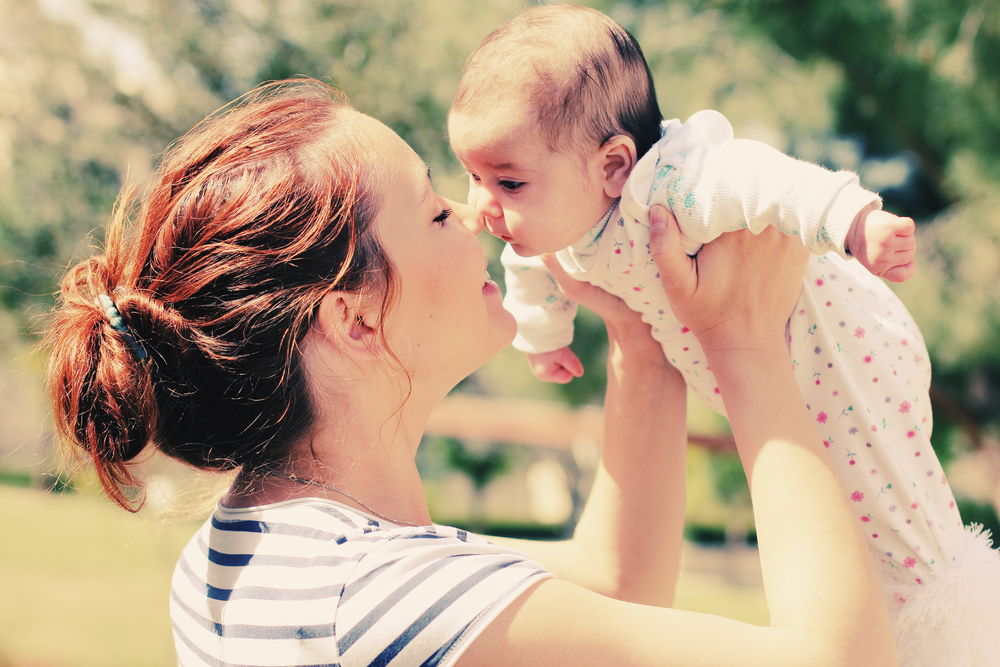On Mother’s Day 2025, a short video uploaded to the social platform X sparked an intense debate across the internet. The footage, posted by an account with a reputation for controversial takes, featured a mother seated at a restaurant table breastfeeding her child while speaking casually to the waitress. Her child, who appeared to be around two years old, nursed openly in a public space without any form of cover. Almost instantly, the moment was shared, reposted, and commented on by thousands, many of whom held strong opinions.
The reactions were deeply divided. Critics questioned the timing, the setting, and the child’s age. Some claimed the act lacked modesty. Others expressed discomfort with seeing breastfeeding so openly displayed in a dining environment. A large portion of commenters took issue not with breastfeeding itself, but with the perceived lack of discretion, noting that it could make other diners uncomfortable.
Critics Say Public Breastfeeding Should Have Limits

The backlash came swiftly. Many users voiced frustration at what they saw as a disregard for etiquette and public sensibility. One user wrote that while feeding a baby is natural, doing it in front of strangers at a restaurant without any attempt to cover up was inappropriate. Another claimed the child was too old to still be breastfeeding, suggesting it bordered on improper.
Some individuals argued that public spaces like restaurants are shared environments, and mothers should be more mindful of others. According to critics, the act itself was not offensive, but the presentation and setting made it problematic. Others pushed the idea that there is a time and place for everything, and that more private spaces should be used when possible.
Despite the intensity of some comments, a number of detractors insisted they were not shaming the mother. They claimed their concerns stemmed from personal discomfort and not from a place of judgment. Still, their posts reflected a broader societal unease with the visible, natural process of breastfeeding when it occurs outside of controlled or private environments.
Defenders Say the Mother Did Nothing Wrong

Not everyone shared the outrage. In fact, a vocal group quickly stepped in to defend the mother and her right to nurse wherever she pleases. Supporters emphasized that breastfeeding is a biological function that should not be hidden, and that mothers should not be expected to retreat to cars, restrooms, or other secluded spaces just to feed their children.
Some pointed out the double standard society often holds. Images of cleavage in advertising, television, and fashion are widespread, yet many people express discomfort when they see a mother breastfeeding. This contradiction, according to supporters, reflects a culture that sexualizes breasts but stigmatizes their actual purpose.
A number of women chimed in to share similar experiences. They described being shamed, stared at, or even asked to leave establishments simply for feeding their children. These mothers explained that their decision to breastfeed publicly was not meant to provoke or offend, but to meet the needs of their children when they were hungry, regardless of location.
The Legal and Health Realities of Public Breastfeeding

Legally, the mother did nothing wrong. Breastfeeding in public is protected by law in all 50 states in the United States. There are no requirements for mothers to use covers, find private areas, or consider the discomfort of others. In fact, several states have enacted additional protections, making it illegal to harass or remove a woman for breastfeeding in public.
From a health perspective, major organizations such as the World Health Organization and the Centers for Disease Control and Prevention advocate breastfeeding as the best nutritional option for infants. They recommend exclusive breastfeeding for the first six months and continued breastfeeding for up to two years or beyond as mutually desired by both mother and child.
Extended breastfeeding is not uncommon and carries additional benefits. For the child, it can strengthen immunity and promote emotional security. For the mother, it can reduce the risk of certain cancers and postpartum depression. Medical authorities stress that these decisions are personal, and mothers should not face public scrutiny for following health guidelines.
Read More: 9 Incredible Facts About The Relationship Between Mother And Son
Why Breastfeeding Still Sparks So Much Controversy

Despite the legal and medical support for breastfeeding, public reactions remain polarized. Cultural norms, personal beliefs, and outdated ideas about modesty continue to shape how people respond when they witness a mother breastfeeding in public.
Part of the discomfort may stem from unfamiliarity. In countries where breastfeeding in public is normalized and common, people rarely react with judgment or unease. But in places where it’s less visible, reactions are often stronger and more emotional. Some believe that visibility is key to shifting attitudes. The more often people see mothers breastfeeding without shame, the more society will accept it as normal.
Others argue that the debate is not really about breastfeeding at all. Instead, they suggest it reflects deeper discomforts around women’s bodies, autonomy, and the expectations placed on mothers. This idea is supported by the fact that criticism often comes not just when breasts are visible, but when mothers step outside traditional roles or behaviors.
The Internet as a Double-Edged Sword

Social media played a crucial role in this incident. The original video was likely filmed without the mother’s consent, raising questions about privacy and ethics. It was uploaded with the intent to provoke, and it succeeded. While the post sparked support, it also invited cruelty, judgment, and shaming.
This is not an isolated event. Across social platforms, mothers are frequently targeted for their parenting choices. Whether it’s breastfeeding, co-sleeping, or disciplining styles, the internet has become a space where mothers are scrutinized, mocked, and dissected by strangers.
Yet at the same time, these platforms can offer support and solidarity. Many of the mother’s defenders found each other through the viral video, bonding over shared experiences. Posts from breastfeeding advocates provided education and perspective, reframing the issue in terms of rights and health rather than personal offense.
The Role of Restaurants and Business Owners

Businesses also find themselves at the center of these debates. When a customer breastfeeds in their establishment, staff and owners may receive complaints or face pressure to act. In many states, however, it is illegal to ask a mother to stop breastfeeding or to ask her to cover up.
Restaurants are increasingly adopting inclusive policies to protect both customers and themselves from legal trouble. Staff are being trained to understand breastfeeding laws and respond appropriately if another patron raises a complaint. Businesses that support mothers publicly often gain praise, while those who react poorly risk backlash and boycotts.
In this case, the restaurant staff appeared unbothered. The waitress in the video served the mother with no visible discomfort. If the business was aware of the viral post, they have made no public comment. That silence might reflect a decision to stay out of a politically charged issue, or it might be a quiet statement of support.
How Incidents Like This Influence Policy and Culture

Public incidents, especially viral ones, often influence policy. When mothers are shamed for breastfeeding, lawmakers sometimes respond by strengthening protections or funding awareness campaigns. In the past, viral controversies have led to new state laws and increased public education.
Culture, however, is slower to change. The visibility of breastfeeding mothers in everyday life is crucial. The more they are seen, supported, and accepted, the more attitudes will shift. Advocates argue that when a mother breastfeeds in public, she is not just feeding her child. She is modeling something important for future generations and challenging outdated norms.
The current incident is part of a larger pattern. Every few months, another photo or video surfaces and the debate begins anew. The outrage, the defense, the hashtags, and the interviews follow. But each time, public familiarity grows, even if slowly. Each incident helps normalize what many health experts and parents consider entirely natural and necessary.
Final Thoughts on Respect, Choice, and Support

The online uproar over this mother breastfeeding at a restaurant touches on more than just one meal or one moment. It reveals how deeply ingrained ideas about parenting, modesty, and public space still shape our reactions. While some see a woman feeding her child, others see a breach of social norms. But the central question remains: should a mother be made to feel ashamed for feeding her child in public?
Supporters say no, and the law agrees with them. Critics may continue to express discomfort, but they must accept that discomfort does not trump a mother’s right to care for her child.
Moving forward, greater education, visibility, and empathy are needed. Public breastfeeding is not an act of rebellion. It is an act of care, often undertaken with love, stress, fatigue, and responsibility. Every time a mother breastfeeds in public, she helps shift the needle toward normalizing that care.
In the end, this was not about a restaurant or a viral video. It was about a mother doing what mothers have done for millennia. Feeding her child. Comforting her child. Living her life. And for that, she deserves not scorn, but space, support, and respect.
Read More: Why a Maternal Grandmother Is So Important for a Child
Disclaimer: This article was created with AI assistance and edited by a human for accuracy and clarity.

